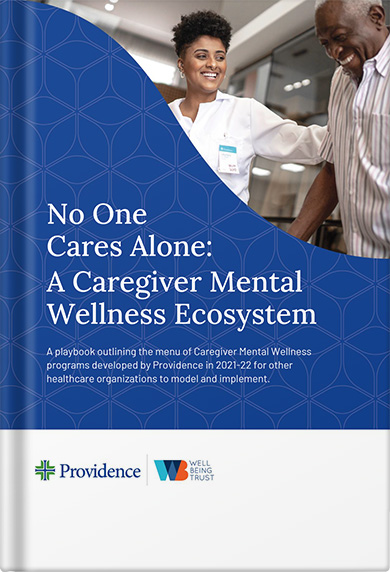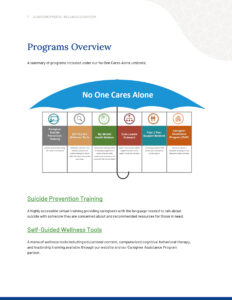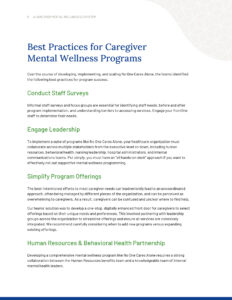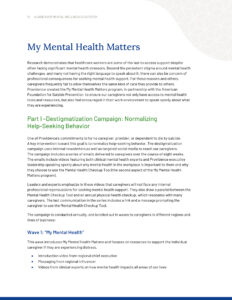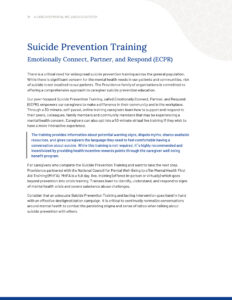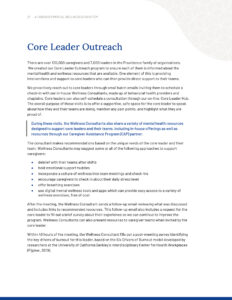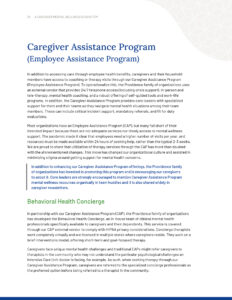Why It’s Needed
With the onset of the Covid-19 pandemic, healthcare workers across the world faced unprecedented stress. This stress came on top of the many challenges healthcare workers faced before the pandemic. While Providence facilities had some mental wellness programs in place, such as the Employee Assistance Program, it quickly became clear that we would need to build additional offerings if we were to meet the ever-increasing need for mental wellness support. As part of Providence’s commitment to supporting the mental wellness of caregivers, we have proudly developed No One Cares Alone (NOCA). NOCA is a comprehensive menu of programs and tools to support our diverse team of caregivers at every stage of their mental wellness journey.
We created this playbook to outline our programs as a model for what’s possible for other healthcare organizations to implement for their caregivers. When looking to develop a program like No One Cares Alone, it's important to have two simple, foundational components in place. The first is to be responsive when caregivers seek help, offering solutions based on their needs and preferences. And the second is to understand that seeking help does not come naturally to many caregivers. Leaders must proactively lean in and create an organizational culture that normalizes help-seeking behavior while simultaneously empowering all caregivers to identify and support those in need.
Goals
- We created this playbook to outline our programs as a model for what’s possible for other healthcare organizations to implement for their caregivers.
- Our goal as we developed No One Cares Alone was that we provide the “The right care to meet each caregiver’s need in the way that they’d like to receive that care.”
Guiding Principles
Utilized a Public Health Approach with a range of interventions from pro-active to reactive services:
- Primary (education and information)
- Secondary (self-guided resources)
- Tertiary (clinical support)
Selected Resources
Dive directly into the playbook for specific guidance on the following areas:
